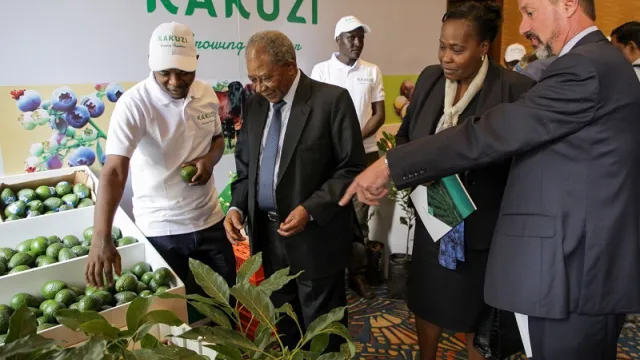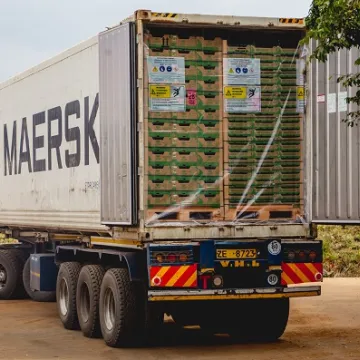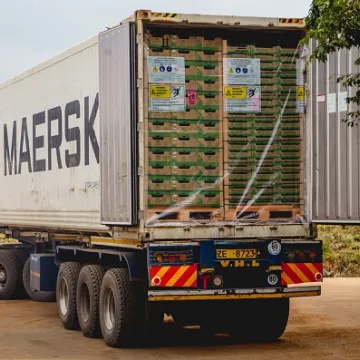Kakuzi feels the squeeze as strong shilling leads to Sh132M loss

Kakuzi PLC Chairman Mr Nicholas Ng’ang’a says that in order to reduce the firm's dependency on European markets, it is essential for both public and private stakeholders in Kenya’s avocado industry to explore high-value new markets.
For fruit exporter Kakuzi, 2024 proved tough, as a double whammy of a strong Kenyan shilling and geopolitical conflict in the Middle East conspired to push the company into a KES131.7 million net loss, reflecting a reversal from KES453.5 million profit reported in 2023.
In an update on Monday, Kakuzi PLC said its troubles lay partly in the strengthening of the Kenyan shilling against major currencies during the trading year.
While ordinary citizens lauded the local currency's 15 percent appreciation against the euro and other major units, this development dealt a severe blow to Kakuzi's export business.
Managing Director Chris Flowers stated, “the Kenya Shilling also strengthened by 15 percent against the Euro, which averaged KES140 during the avocado export season, resulting in lower shilling revenues compared to the previous year when the Euro averaged KES162.”
This implies that every avocado sold in Europe now translated into fewer shillings back home, resulting in forex losses totaling KES197 million, a far cry from the KES118 million which the Murang'a based company gained in 2023.
Red Sea shipping challenges
The situation worsened when geopolitical tensions in the Middle East effectively closed the Red Sea shipping lanes, forcing Kakuzi's fruit shipments to take the much longer and expensive route around South Africa's Cape of Good Hope.
“Whilst we hope that the geopolitical tension in the Middle East will ease, we must plan to continue with the rerouted logistics in 2025," Mr. Flowers noted.
Kakuzi PLC Chairman Mr Nicholas Ng’ang’a added that: “To reduce our dependency on European markets, it is essential for both public and private stakeholders in Kenya’s avocado sector to explore high-value new markets. While China and India hold potential, their current demand is still relatively low compared to Europe’s. As the largest consumer of avocados globally, the North American region must be considered a future target for Kenya’s exports.”
He added, “In 2024, the USA consumed 1.3 million metric tonnes of avocados, compared to 0.9 million metric tonnes in Europe, with over 80 percent of its avocados sourced from Mexico. The North American market presents a significant opportunity for Kenya.”
According to the Nairobi Securities Exchange-listed company, the route via South Africa saw cargo take additional two weeks at sea, a development that took a heavy toll on its fruit quality upon arrival in the European markets.
The combined effect saw export volumes drop by 28 percent to 2.2 million cartons. What's more, in 2024, the firm said excessive rainfall led to waterlogged farms, reducing yields of both hass and pinkerton avocado varieties by 23 percent and 19 percent respectively.
Macadamia exports
However, the company's macadamia division staged a remarkable turnaround, posting a KES69 million profit compared to a KES354 million loss in 2023. The forestry unit saw profits nearly double to KES288 million, while the livestock division returned to profitability with KES31 million in earnings.
Looking forward, Kakuzi said it is monitoring advancements in agricultural technology, including AI and autonomous farming equipment like drones, as it seeks to boost yields and efficiency.
Despite the challenging year, Kakuzi's board maintained shareholder confidence by recommending a dividend of KES8 per share.





